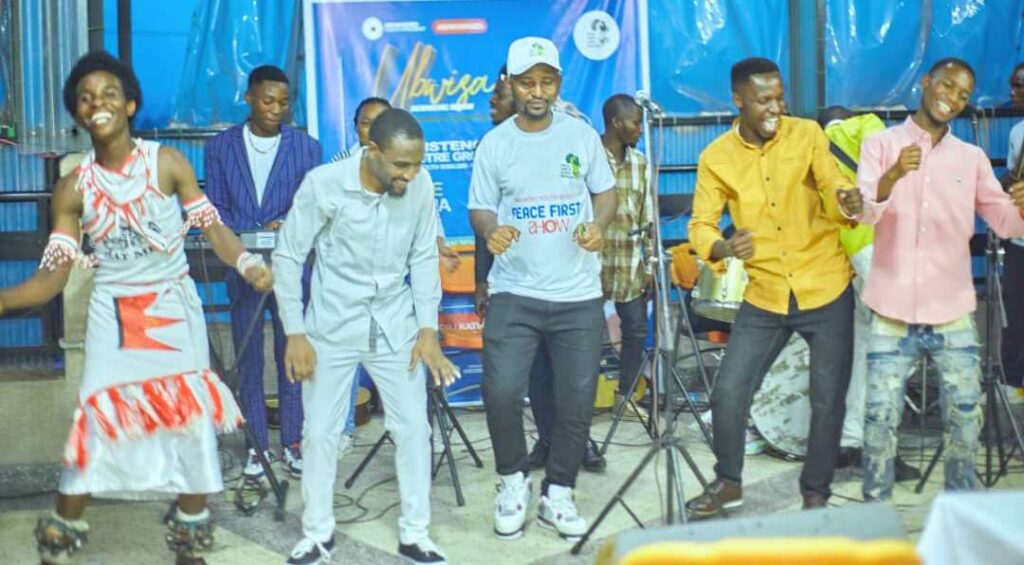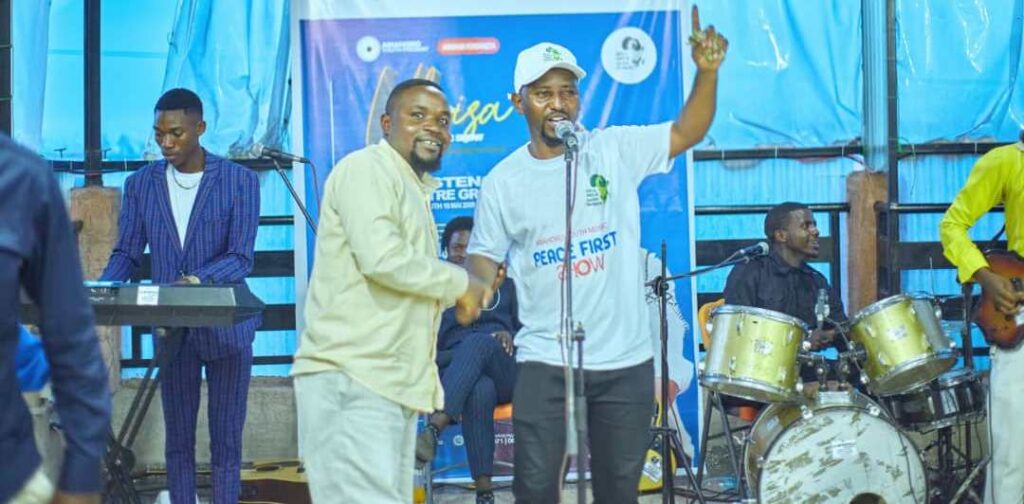Background

The Democratic Republic of Congo (DRC) has long been afflicted by ethnic-based violence, particularly in its eastern regions of North Kivu, South Kivu, and Ituri provinces. Since 1996, foreign powers have exploited ethnic tensions through neighboring countries Uganda and Rwanda, waging an economic war that has led to the occupation of DRC territories by Rwandan forces disguised as local M23 rebels. Achieving sustainable peace in this very complex context requires multifaceted strategies that foster peace. Rather than relying on elite conferences, AFJN believes that grassroots engagement is key to fostering peace. The “Unity Through Diversity” initiative aims to promote social cohesion and sustainable peace in Eastern DRC by promoting positive cultural identity through music and engaging youth in peacebuilding efforts. By empowering local stakeholders and celebrating diversity, AFJN seeks to build a more united and peaceful DRC.
Ethnic Violence and the Need for Peacebuilding
The Eastern DRC is plagued by over 100 rebel groups, many of which are driven by ethnic agendas. These groups have perpetrated numerous ethnically motivated atrocities, including killings, looting, and land grabbing. The M23 militia, allied with Rwanda and Uganda and primarily composed of ethnic Tutsis, is a prominent example.
However, the current alliance among previously warring armed groups against M23 and its allies presents a unique opportunity for promoting peace and bridging ethnic divides. The DRC’s recent history is marred by horrific acts of violence, including rape, beheadings, lynching and sexual mutilations. These atrocities, extensively documented by the United Nations and other organizations, highlight the urgent need for initiatives promoting peace and social cohesion. The UN Mapping Report (1993-2003) reveals severe human rights violations and breaches of international humanitarian law, underscoring the necessity for action to address past, present, and undocumented abuses.
The Role of Music in Peacebuilding

AFJN believes that music is a powerful tool for reaching the masses with messages of peace and unity. Consequently, AFJN has partnered with musicians in North Kivu to promote cultural identity, acceptance, and peaceful coexistence. On May 19, AFJN collaborated with Aimable Mugisha and his music band, Amahoro Youth (Youth for Peace), for a “Peace First” concert celebrating the 15th anniversary of a local bank. The event was attended by approximately 150 people, primarily youth aged 18 to 30, reflecting the program’s focus on young people as agents of change.
Unity Through Diversity Program
The “Unity Through Diversity” initiative is an important program of AFJN’s just governance efforts in Eastern DRC, targeting youth to foster social cohesion, bridge communities, and promote cross-cultural education. This program aims to counteract the toxic influences of tribalism, divisive rhetoric, conflict fueled by politicians, social media, and lack of positive role models.
These factors have perpetuated ethnic violence over the past two decades, with each group maintaining armed factions for self-defense, creating a cycle of violence. The program encourages young people to choose unity over division, love over hatred, and peace over conflict.
It promotes inclusive behaviors, celebrates collaboration, and encourages repentance and reconciliation for crimes against other communities. By emphasizing interculturality, the program empowers youth to become agents of change and peace. Artistic expression, particularly through music, is used to address deep-seated intolerances and mistrust between communities, promoting a culture of unity and peace.
Event Highlights
The “Peace First” concert showcased performances by six artists from diverse ethnic backgrounds, including Havu, Nande, Hunde, Tembo, Nyanga, and Hutu. The event was attended by several authorities and representatives, and received media coverage from Mudiho FM, Blessing FM, and Kibarizo FM. Despite invitations, some notable figures were absent.
Conclusion
AFJN’s “Unity Through Diversity” initiative demonstrates the transformative power of cultural identity, music, and youth engagement in promoting sustainable peace in Eastern DRC. By fostering social cohesion and bridging communities, this program challenges ethnocentric ideologies that often lead to ethnic violence. The success of the “Peace First” concert highlights the potential of artistic expression to promote unity and reconciliation among diverse ethnic groups. As the DRC continues its journey toward peace, initiatives like “Unity Through Diversity” offer a beacon of hope for a future where diversity is celebrated and embraced.
